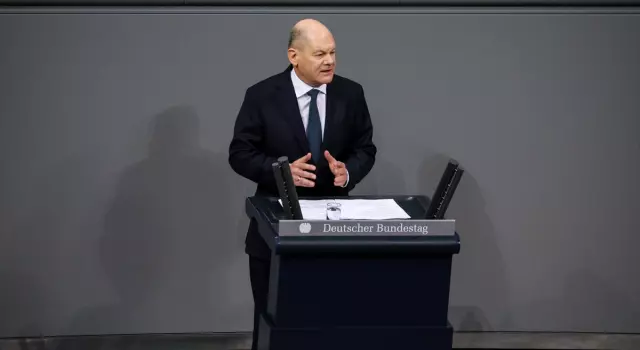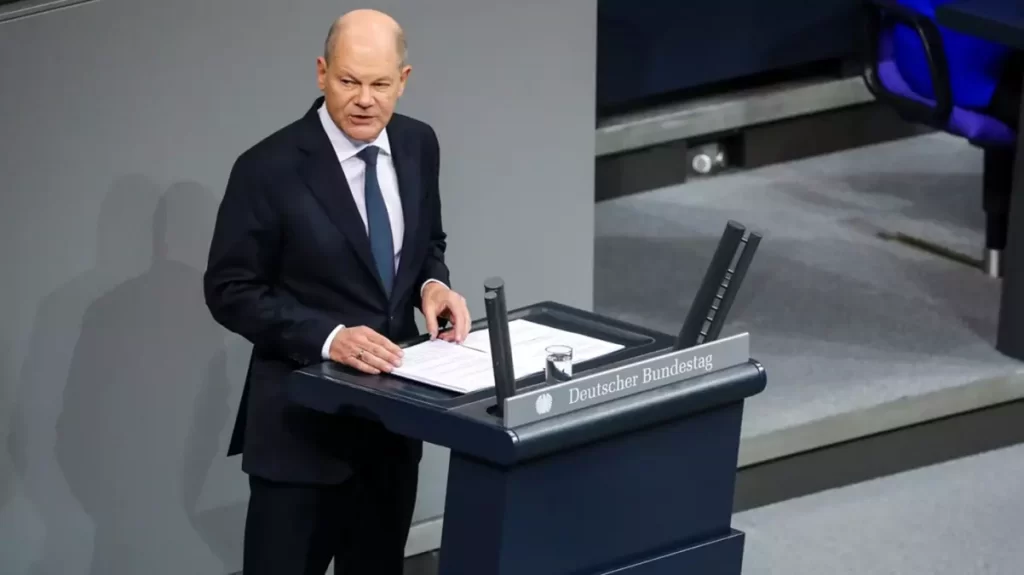Chancellor Olaf Scholz Fails to Secure a Vote of Confidence
Scholz Loses Confidence Vote, Triggers Early Elections
Chancellor Olaf Scholz failed to win a vote of confidence in the Federal Parliament. The political crisis began when Scholz dismissed Finance Minister Christian Lindner. This decision led to the collapse of Germany’s coalition government. The country will now hold general elections within 60 days.

Dismissal of Finance Minister Causes Government Collapse
The crisis started on November 6, when Scholz removed Finance Minister Christian Lindner. Lindner, also the leader of the Free Democratic Party (FDP), had been a key coalition partner. Following the dismissal, the FDP withdrew its ministers from the cabinet. This move dissolved the “traffic light coalition,” which included the SPD, Greens, and FDP.

Election Date Proposed for February 23
On December 11, Scholz announced his plan to seek a confidence vote in Parliament. He chose December 16 as the date for the vote, invoking Article 68 of the German Constitution. Scholz stated that if he failed, he would ask President Frank-Walter Steinmeier to dissolve Parliament.
After the government collapse, the SPD, Greens, and CDU/CSU proposed February 23, 2025, as the election date. The final decision, however, rests with President Steinmeier. Political parties have already started preparing for the election campaign.
According to Article 68, a chancellor who loses a confidence vote can recommend Parliament’s dissolution. The president must decide within 21 days. Once dissolved, general elections are held within 60 days. This ensures a new government can be elected quickly.















